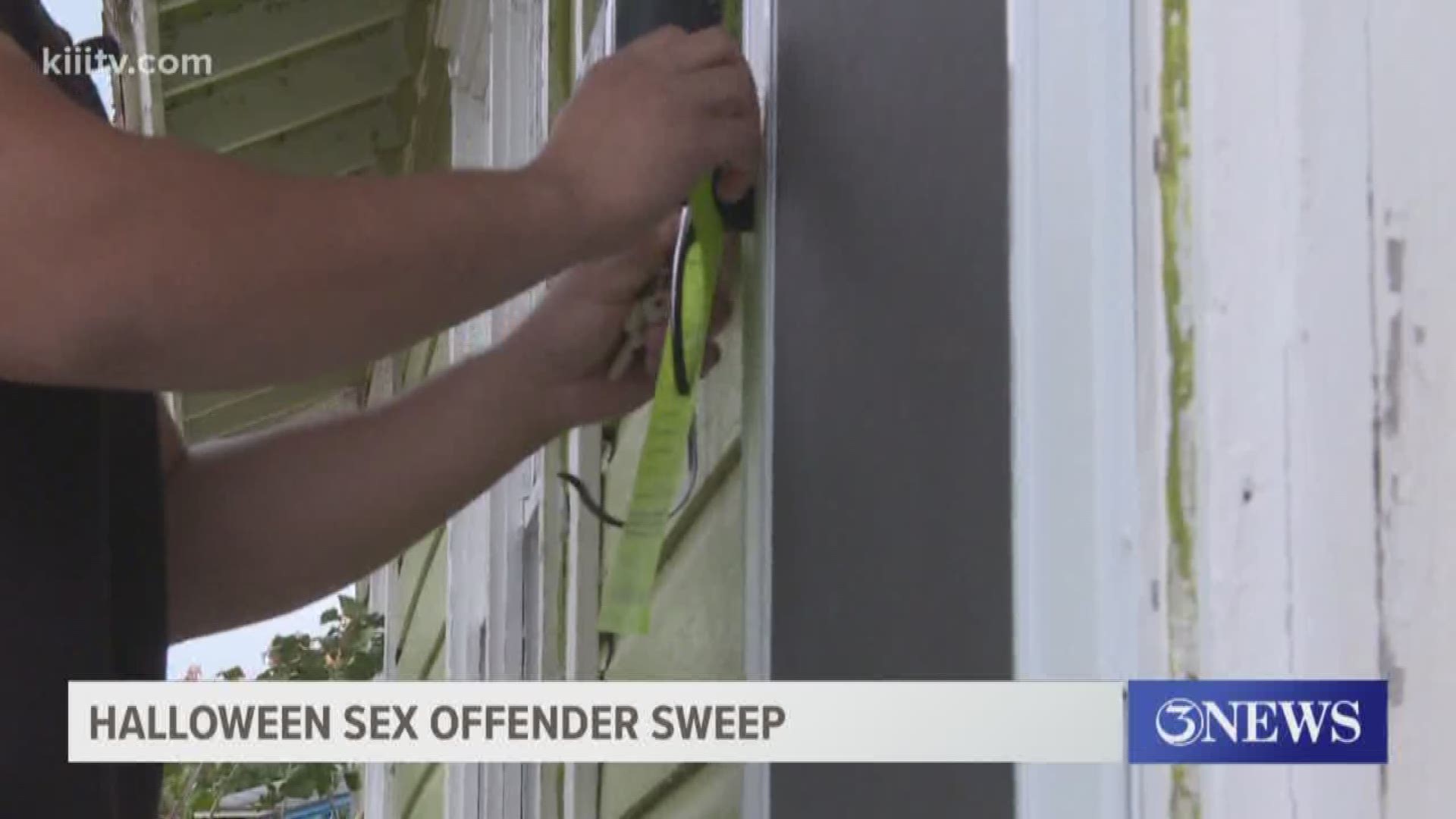TRAVERSE CITY, Mich. — The conversation always goes the same way.
At least once a semester — often more — School Resource Officer Joe Soffredine takes a seat across from a nervous, fidgeting, eye-contact-avoiding high schooler in an office at Traverse City Central High School in Traverse City, Mich.
She doesn’t know why she’s there.
But the reality sets in quickly as Soffredine clears his throat and prepares the well-rehearsed speech — explaining that Snapchatting those nude photos to her high school boyfriend constitutes a felony.
“Most kids don’t realize,” said Soffredine, who works primarily with students at Traverse City Central and occasionally fields similar calls from parents in the summer. “They don’t really realize what could happen, what kind of trouble they could be facing.”
Teenagers face a wealth of confusing, conflicting new emotions, compounded by evolving sexuality, school-day drama and the task of navigating love and relationships for the first time.
And it comes with growing pains — like the steep consequences of “sexting” and sharing racy pictures via Snapchat, text message, Instagram and other apps.
In Michigan, any minor snapping a lewd selfie could be prosecuted for creating child pornography, a felony with a maximum punishment of 20 years in prison and potentially similar stint on the sex offender registry.
Just saving a flirty pic from a boyfriend or girlfriend younger than 18, regardless of the recipient’s age, can mean a four-year prison sentence. Sending a shot — or as the state calls it, distributing child sexually abusive material — could net seven years behind bars.
Each charge is a felony under Michigan’s 1931 Child Sexually Abusive Material Law, and each comes with mandatory registration as a sex offender.
And nothing in that law specifies the difference between a sexual predator and a 16-year-old taking a braless selfie for her boyfriend. Even young couples older than 16, the state’s age of consent, aren’t safe — they can have sex, but not snap a photo of it.
It leaves police and prosecutors with weighty questions — like how to treat teens who consensually share nudes pictures?
“The law is there to protect children, and these are basically children,” said Grand Traverse County Prosecutor Noelle Moeggenberg. “It’s not something we really want to criminalize.
“The kids we’ve talked to have no idea it’s a crime.”
Moeggenberg’s northern Michigan colleagues share her apprehension.
“(The way) I look at it, did the legislators intend it to apply in this sort of situation?” said Kalkaska County Prosecutor Mike Perreault.
“Kids are kids — I don’t know if they’ve changed much since you or I were young,” added Keith Smith, Kingsley Area Schools superintendent. “The ramifications aren’t immediate, so they don’t realize what they’re doing. Like other at-risk behaviors of kids — drinking, smoking.”
Those waters aren’t so clear, however, when there’s a question of coercion or sharing without permission — the only thing those teens can be charged with in most of these cases is child pornography, Moeggenberg said.
The statute forces prosecutors to take an all-or-nothing approach.
“When you charge someone with a felony, you’ve done a lot to mess up their lives,” said Leelanau County Prosecutor Joe Hubbell. “Just because you could, doesn’t mean you should.”
Numbers prove hard to quantify — each prosecutor said they see a handful of cases each school year, give or take. But they suspect plenty more slip by.
It’s a new problem.
Moeggenberg and Perreault didn’t see anything of the sort until about 10 years ago, and law enforcement back them up. All point to the advent of smartphones fueling the trend.
“It’s kind of the flavor of the times — that’s what we’re dealing with,” Hubbell said. “Everybody now has a smartphone.”
About 30 percent of high-schoolers admitted to sending nudes in a 2014 study printed in the International Journal of Cyber Criminology. Another 27 percent at least considered the act, and 56 percent received nudes.
Another 2014 study, this one conducted by Drexel University, backs that 30 percent finding through a survey of college students about their past sexting behavior.
The Cyber Criminology piece names 17- and 18-year-olds as the most likely sexters, and claims the vast majority of flirty pics are traded between teens in romantic relationships.
And it claims those numbers have only risen with trends of cellphone ownership and technological advances.
“We did stupid stuff as kids, but didn’t have the luxury of technology making it worse,” said Justina Hlavka, a Traverse City resident and parent to a 16-year-old boy. “The ability to do dumb things has become a lot more accessible.”
She approaches the situation by fostering open communication and setting limits on her son’s phone usage.
“The understanding is that there’s no expectation of privacy. If we say ‘Let us see your phone,’ he hands it over,” Hlavka said “I think a lot of it, too, is sitting down and talking about it as a parent.”
Local schools, prosecutors and officers employ a similar method — enlightening teens on the potential consequences of sharing such snapshots.
Soffredine usually gets a call after a parent or teacher catches a teen taking or sending pics. And he finds himself, again, seated with a terrified teen.
“You never know where those pictures will end up,” Soffredine said. “I think it’s important for students to know, for kids to know, for parents.”
From there, he files a report and passes it along to the prosecutor for a final decision. It works the same in Kalkaska, Perreault said, and as long as officers think counseling can address the case, he passes on taking it further.
But age makes a difference — like in a recently filed Missaukee County case, an 18-year-old faces felony charges for swapping pics with his 15-year-old schoolmate.
It’s why education is so important, Soffredine said.
“An 18-year-old (sharing pictures with) a 15-year-old is different — you have an adult in possession of pictures of a 15-year-old,” he said. “That’s one of the big components, teaching kids at 15 and 16 what can happen when you become an adult.”
It’s important that teens understand the severity — just because she’s not filing charges doesn’t mean another jurisdiction wouldn’t, Moeggenberg said.
Five students faced charges in Oakland County in 2014 after investigators discovered dozens of Rochester High School students shared racy images, the Detroit Free Press reported. And Michigan State Police investigators pursued a near-identical case soon after at Romeo High School, in nearby Macomb County.
And while no charges resulted from investigations into a slew of sexting incidents involving Muskegon middle- and high-schoolers in 2016, it left law enforcement and prosecutors concerned, MLive reported.
The cases spread far beyond Michigan’s borders. Several Iowa teens faced criminal charges last February for sharing nudes, the Des Moines Register reported, including a 15-year-old boy. A month before that, Minnesota prosecutors charged a 14-year-old girl with felony distribution of child pornography for a racy Snapchat she sent to a school crush, according to a release from the American Civil Liberties Union.
A judge later dismissed that case.
The cases have the potential to ruin a teen’s future, and makes Moeggenberg and other prosecutors ask whether the laws need a change.
It has been a topic of discussion among the state’s prosecuting attorneys, she said.
Moeggenberg suggests a sexting statute or juvenile court program in which teens complete classes and probation without formal charges on their record.
Other states have already done so.
Earlier this year, Washington Gov. Jay Inslee signed a measure preventing sexting minors from facing felonies — though they could still be charged with misdemeanors, the Associated Press reported.
Virginia lawmakers recently made similar changes, preventing teens from branding as a sex offender in consensual sexting cases, the Washington Post reported, and Colorado bumped punishments for teen sexters down to fines and mandatory education programs.
But Smith isn’t so quick for a change.
“You have to be careful when you’re allowing child porn to exist on some level — I’d much rather see a law with a little teeth applied with common sense, like the Grand Traverse prosecutor is doing,” he said. “Any revision’s gonna have a lot of loopholes.”
It’s important to account for gray areas, like when locker room pictures are shared, Smith said. His students learn about the issues in health classes and counselor-led lessons.
But having the talk at home is equally important.
“I feel like too many people rely on the schools to have that conversation,” Hlavka said.
She may be right.
A 2014 Planned Parenthood poll found that most parents have “the talk,” but they tend to falter with more uncomfortable subjects. A whopping 93 percent of parents feel they’ve done a good job educating their teen and influencing whether they have sex — but just 64 percent of teens back them up.
And it seems sexting is a major source of anxiety when it comes to sitting down for “the birds and the bees,” according to a 2017 study printed in the Pediatric Clinics of North America journal.
“It should be education, it should be teaching our kids to be decent human beings,” Hlavka said. “Be smart about it, use your brain.”



































